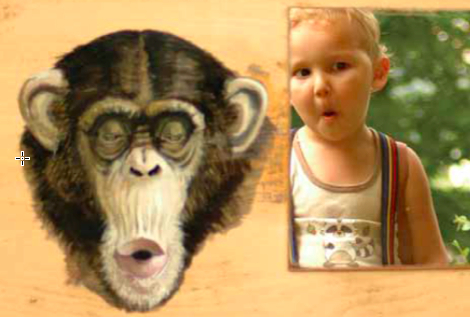
Believing in Darwin
Science teacher and Jesuit Father Terry Kelly SJ speaks to journalist Virginia Small about how he opens students up to new ways of thinking about science and religion. His book, Stars, Life and Intelligence: Being a Darwinian and a believer gives an emphatic 'yes' to the question: 'is there a middle ground between evolution and the biblical Creation story?
VS: Random chance or intelligent design? How do you explain that to students in a Christian context?
Father Kelly: There's chance where a family camps under a tree, they're struck by lightning, a person is killed. There's chance in a raffle. In Powerball someone does not have to win. Could the universe have popped into existence? There are particles that pop in and out of existence by chance, but existence is governed by strict mathematical laws.
There are 30 constants of nature required for the universe to exist. Lee Smolin, a non-believer, said there was a one in 110 to the power of 229 chance of intelligent life emerging. Fred Hoyle said the existence of carbon depends on three coincidences. We don't know the reality behind the laws of nature and don't know why we're fruitfully engineered.
It's eminently mathematical and reasonable that there was a beginning. That demands a creator.
You quote in your book 'Life has a direction'. How do you put this statement to students within the context of evolution?
There is an overall progress towards human beings. In animal consciousness and intelligent consciousness there is a direction. For example, hearing evolved in fish, dual circulation emerged separately twice - once in the octopus and once in vertebrates. Inner heat control evolved five times.
Does nature have a purpose? How do you explain purpose in the context of evolution and biology classes?
It is beyond the capacity of scientific method to conclude there is a purpose or no purpose. But looking at evolution one can look at this as the unraveling purpose of nature. The camera eye, for example, evolved 40 times. Theologians say the intention for intelligent beings was right at the start.
You explain that 'humans have properties not needed for survival'. Was there a reason for these properties?
The whole thing is not necessarily survival of the fittest although it has played a big part in our evolution story. What I'm referring to in the book is all we've invented especially art, poetry and music.
Are our souls part of the creation?
Plato said the human had a dual nature but the soul is at war with the body. Descartes said the ultimate meaning of the human was the thinking capacity. The theory of emergence is that in living cells have emerged new properties which are not reducible to proton, neutron and electron properties. Matter is ultimately potentially spiritual - its ultimate potentiality can emerge.
How do we reconcile 'survival of the fittest' with the Christian perspective of the right to life?
Survival of the fittest is instrumental to the survival of the special. But as regard the right to life - one can swat a mosquito or get rid of flu virus...one can't kill a dog without reason - but thousands of cattle are being lined up to be killed. So there is no absolute right to life. The survival of the fittest mechanism is for evolution - the right to life is only applied to humans.
When science and religion both claim truth - who's right? How do we reconcile them?
John Haught (a philosopher and theology lecturer from Georgetown University) outlines four ways of looking at science. The first is conflict - science is based on fact, religion on assumption, the second is contrast - science deals with the natural world and religion deals with the world's ultimate meaning. Third, contact - science and religion both influence each other - for example you need to understand the big bang, relativity and quantum physics to understand God.
And fourth, confirmation - science confirms and extends the idea of God's subtlety.
Father Kelly teaches Physics, Philosophy, Religion and Science at St. Ignatius' College, Norwood, Adelaide. Stars, Life and Intelligence: Being a Darwinian and a believer, is published by ATF Press.